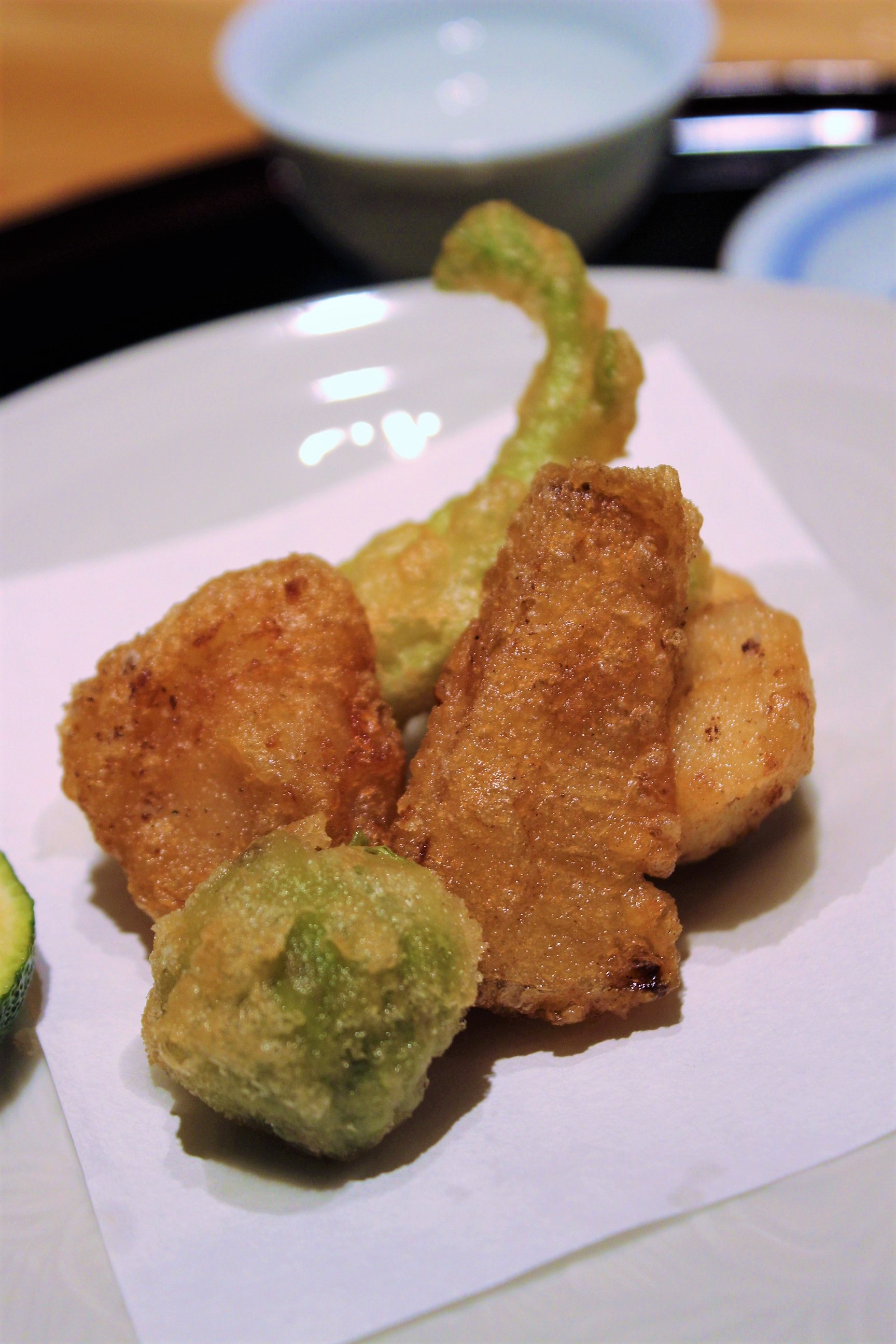Kien 帰燕: Feast in the East
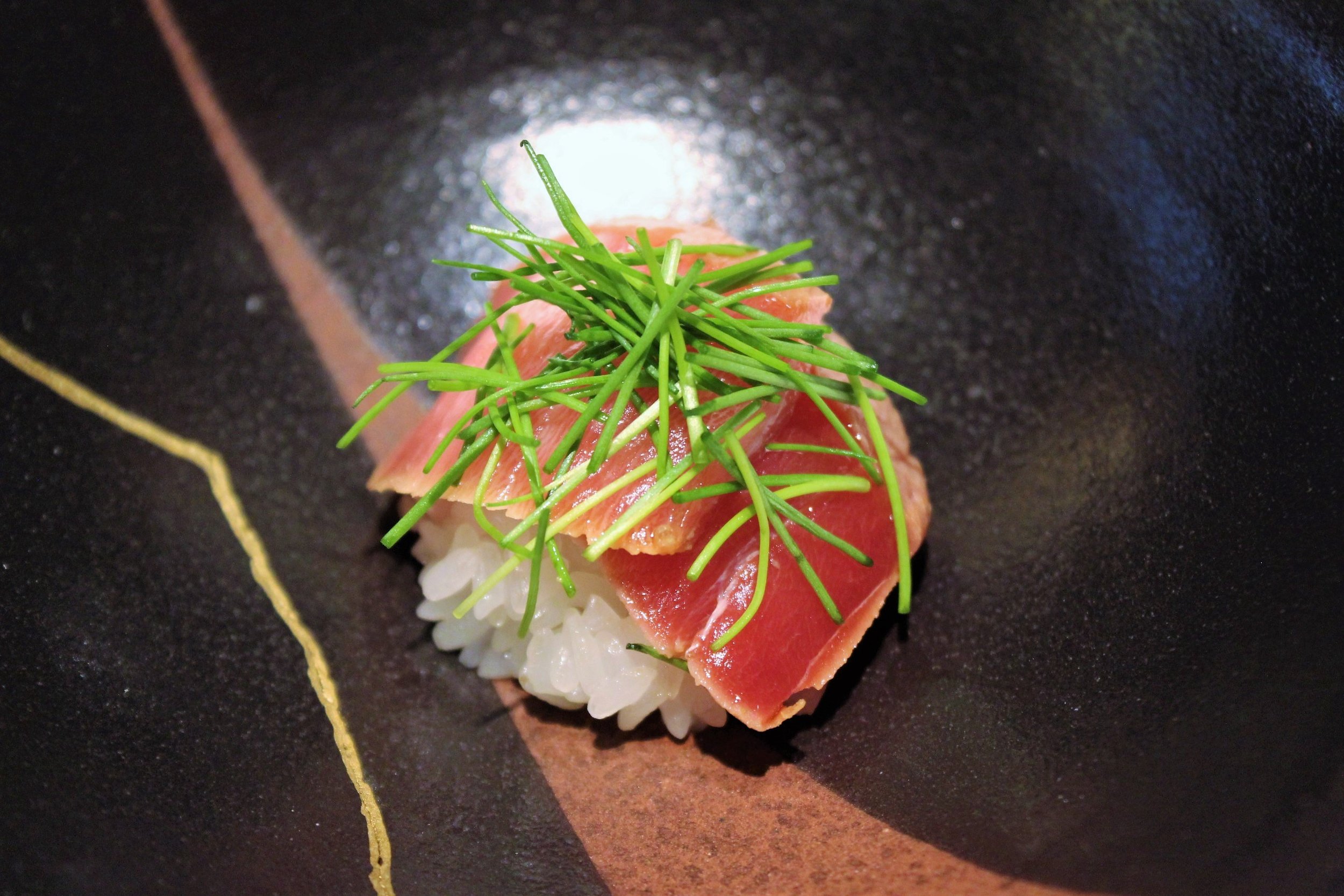
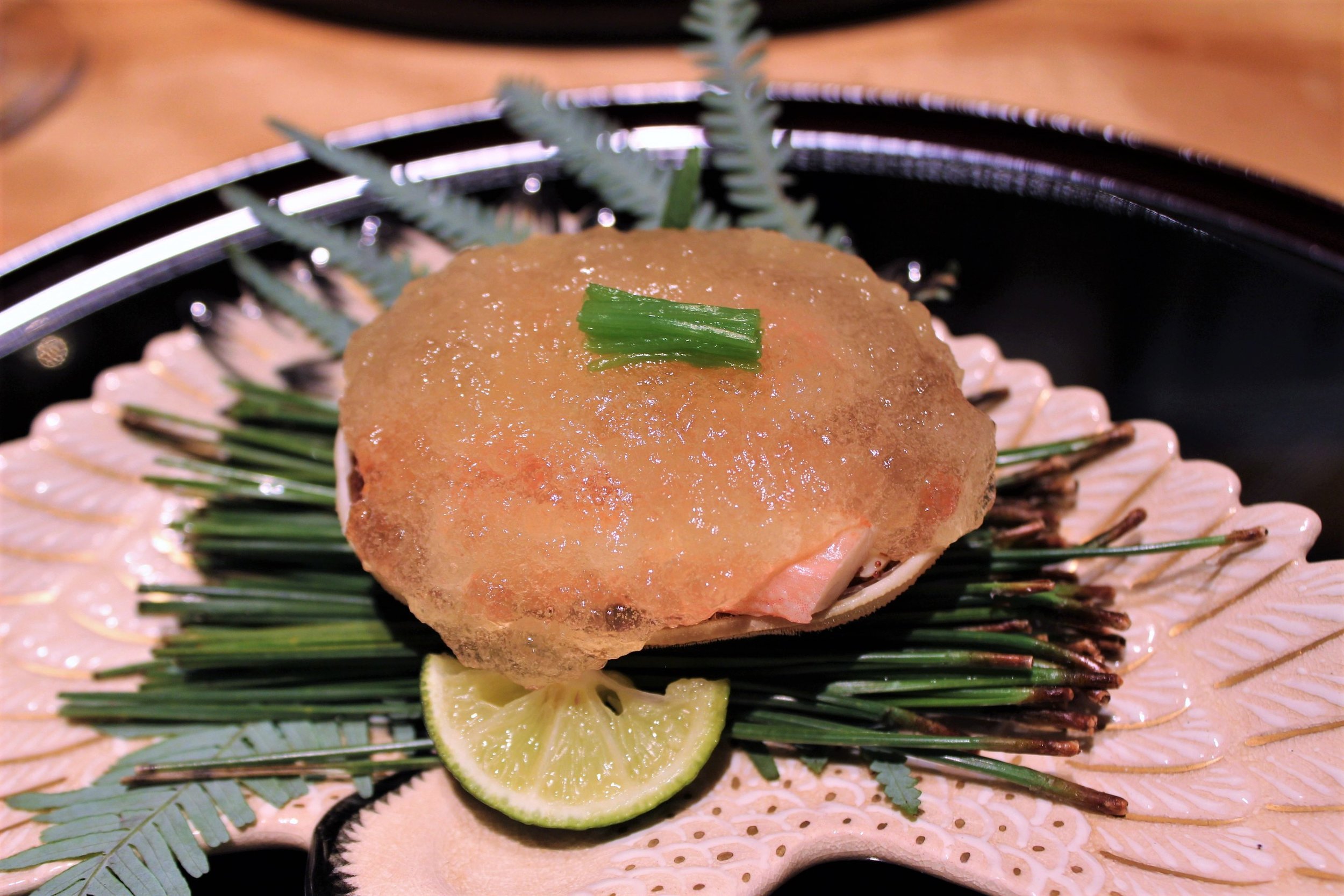
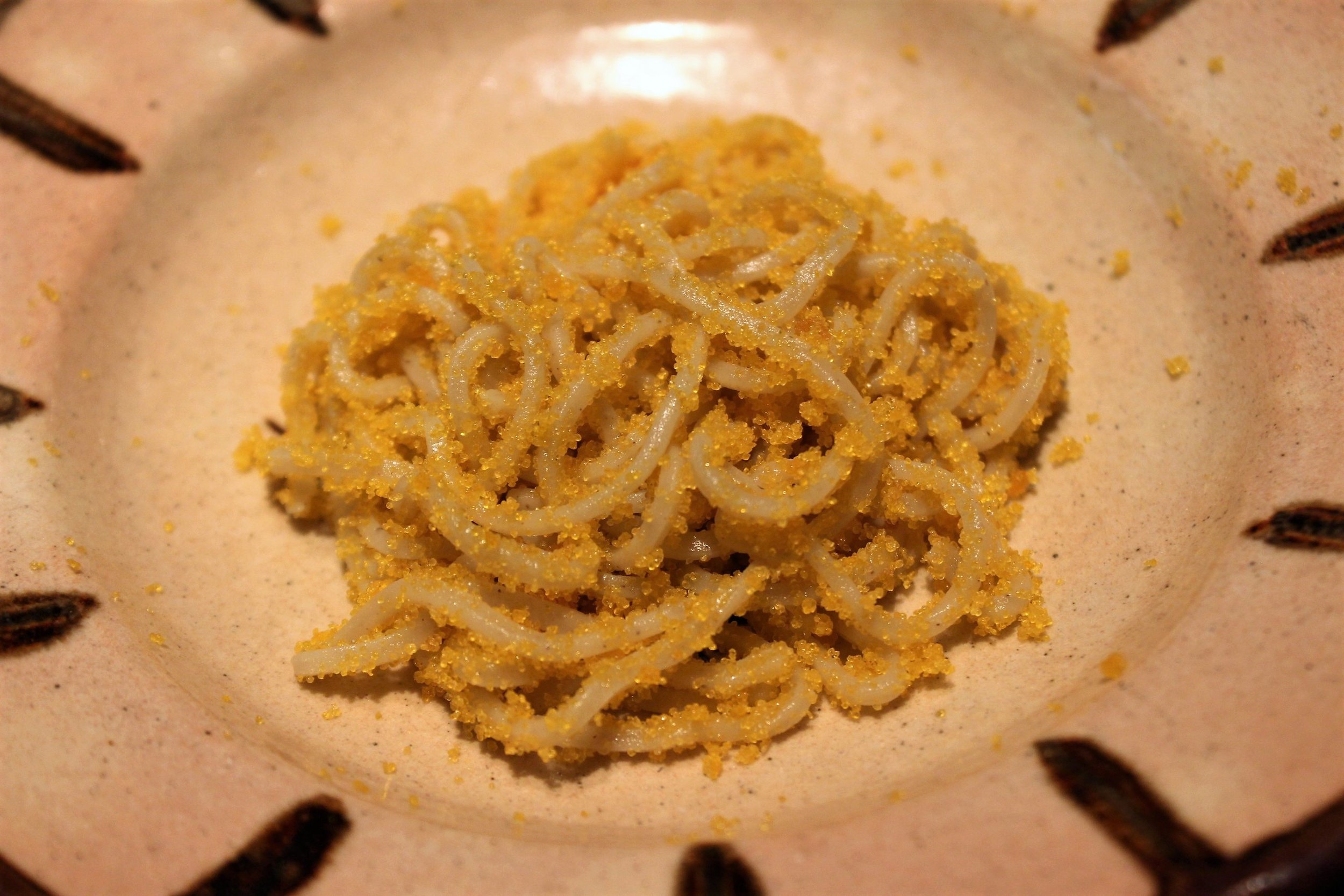
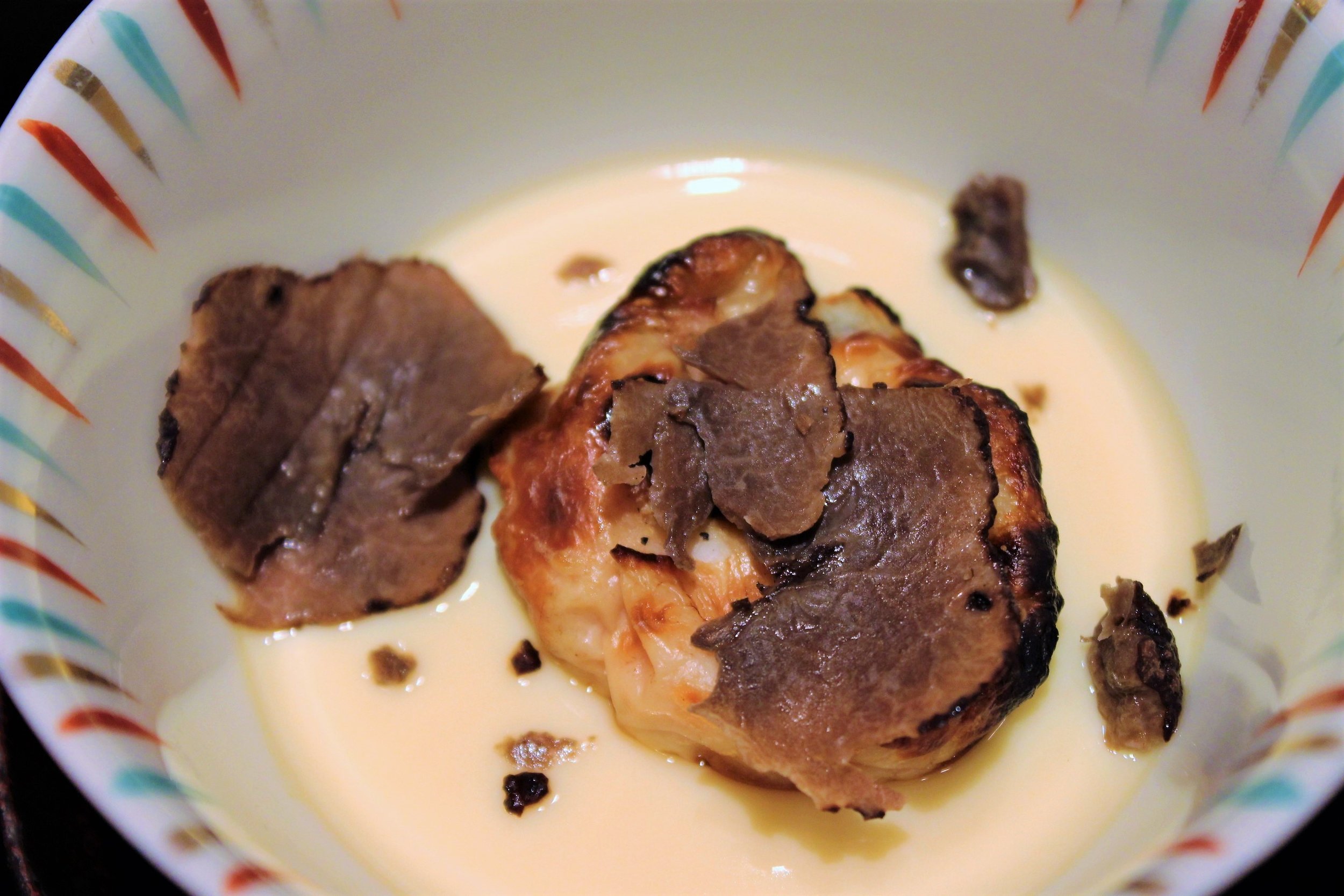
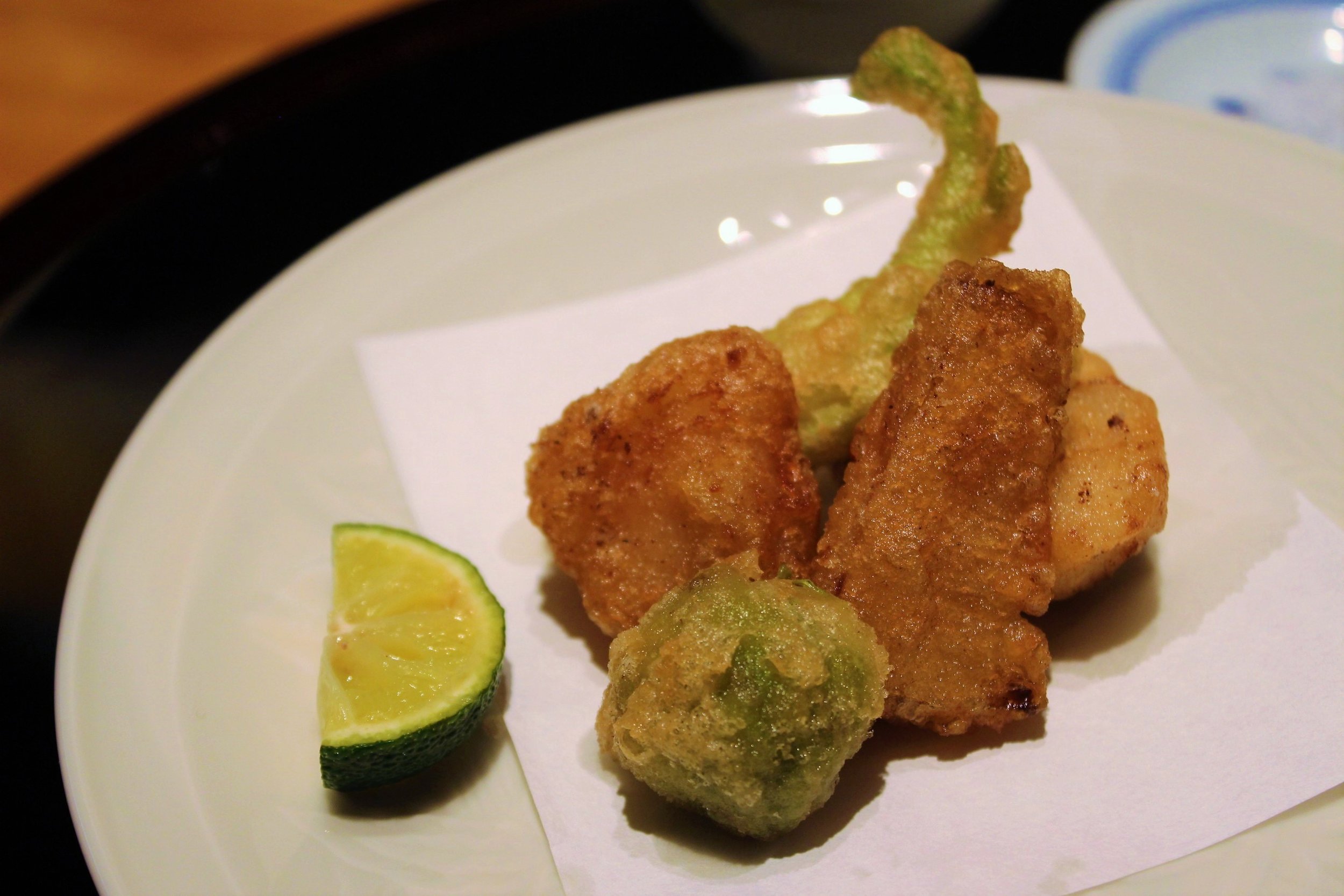
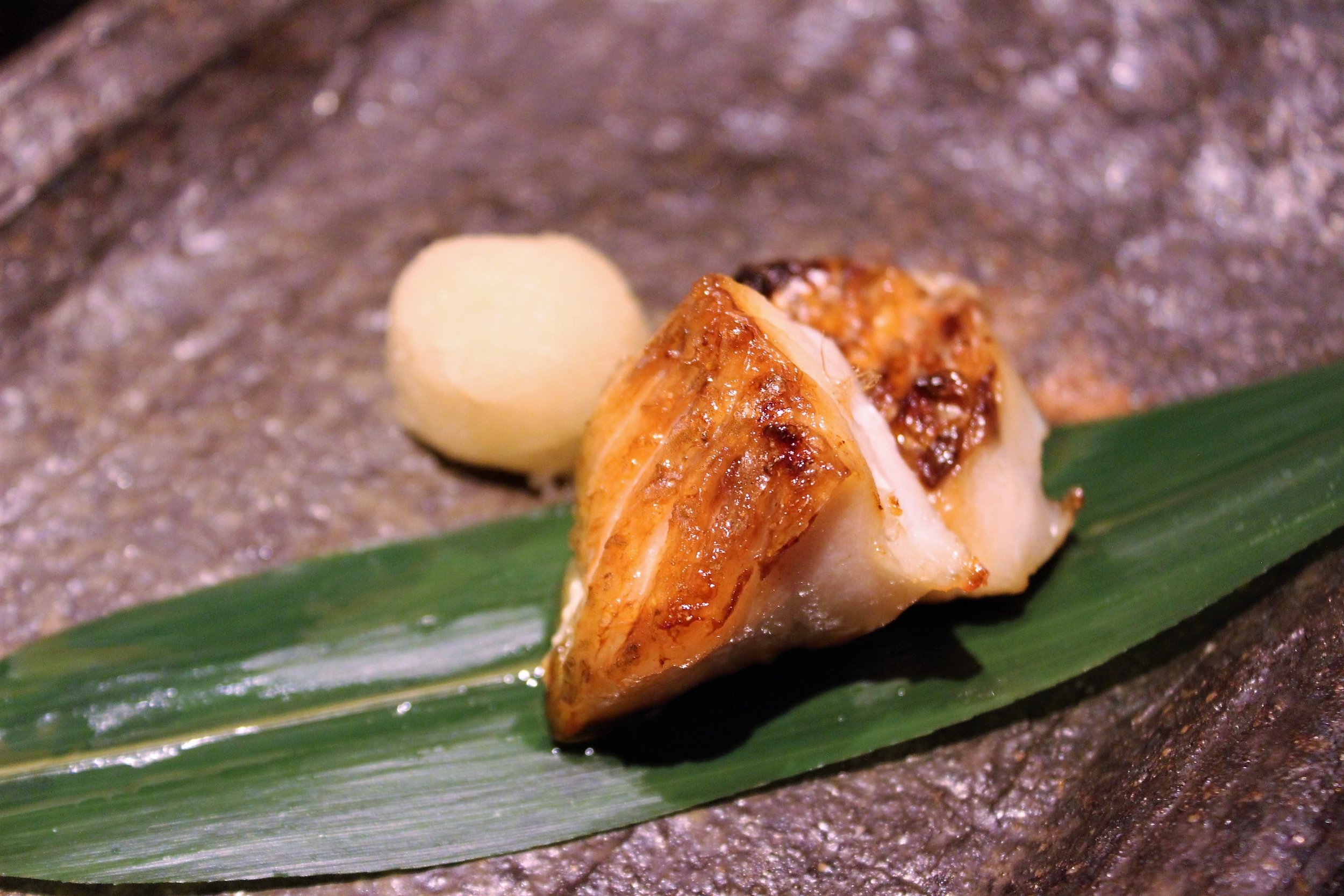
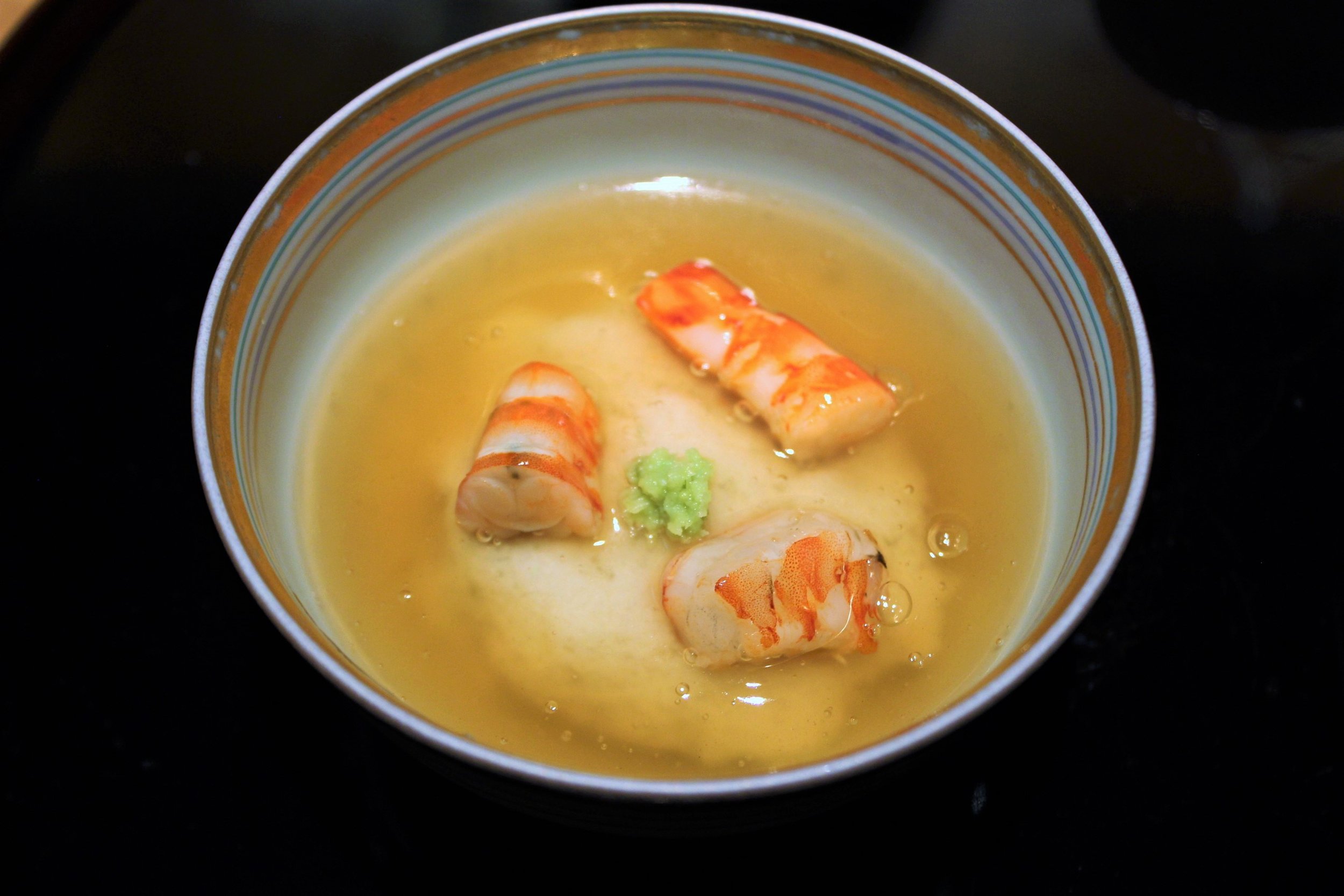
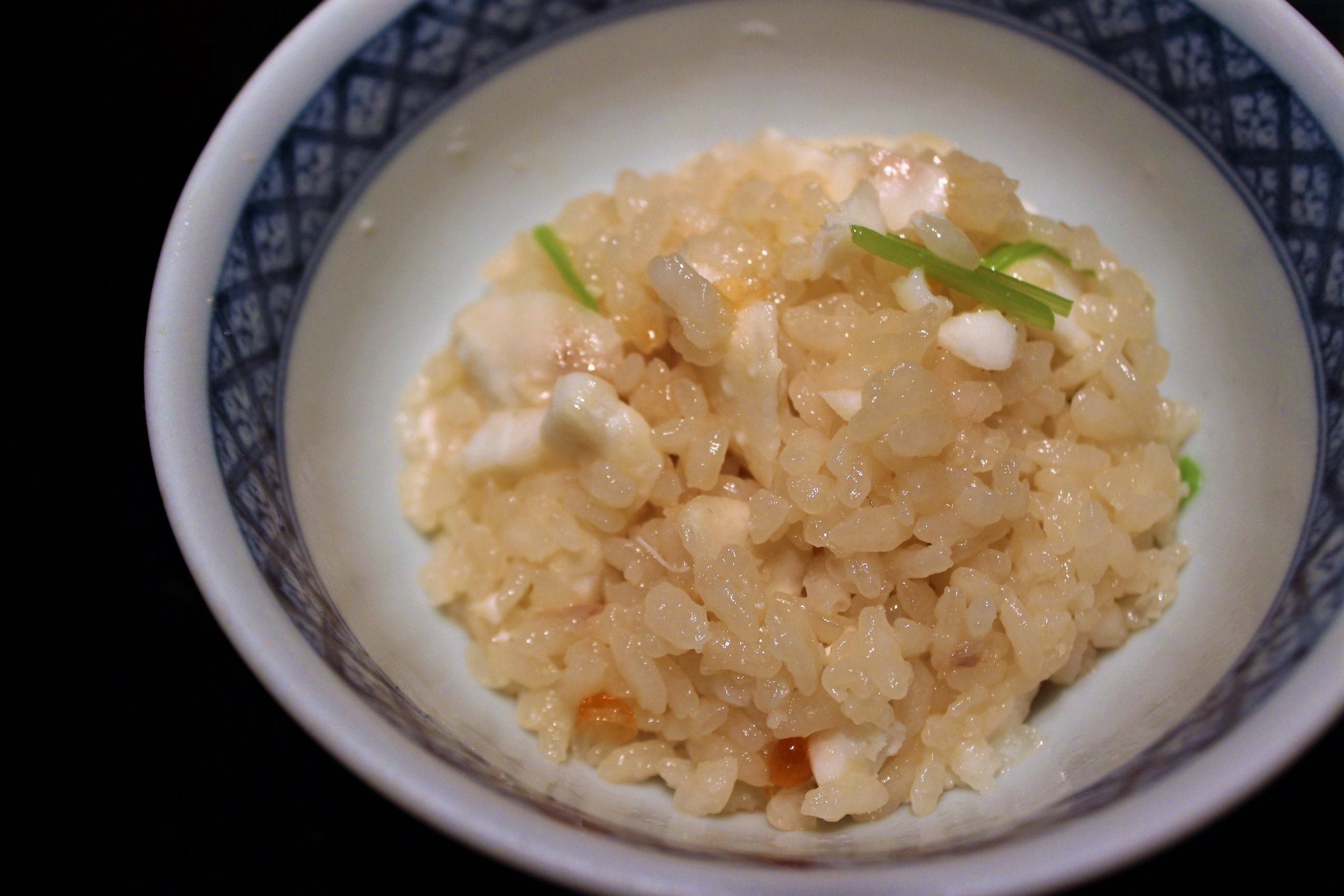
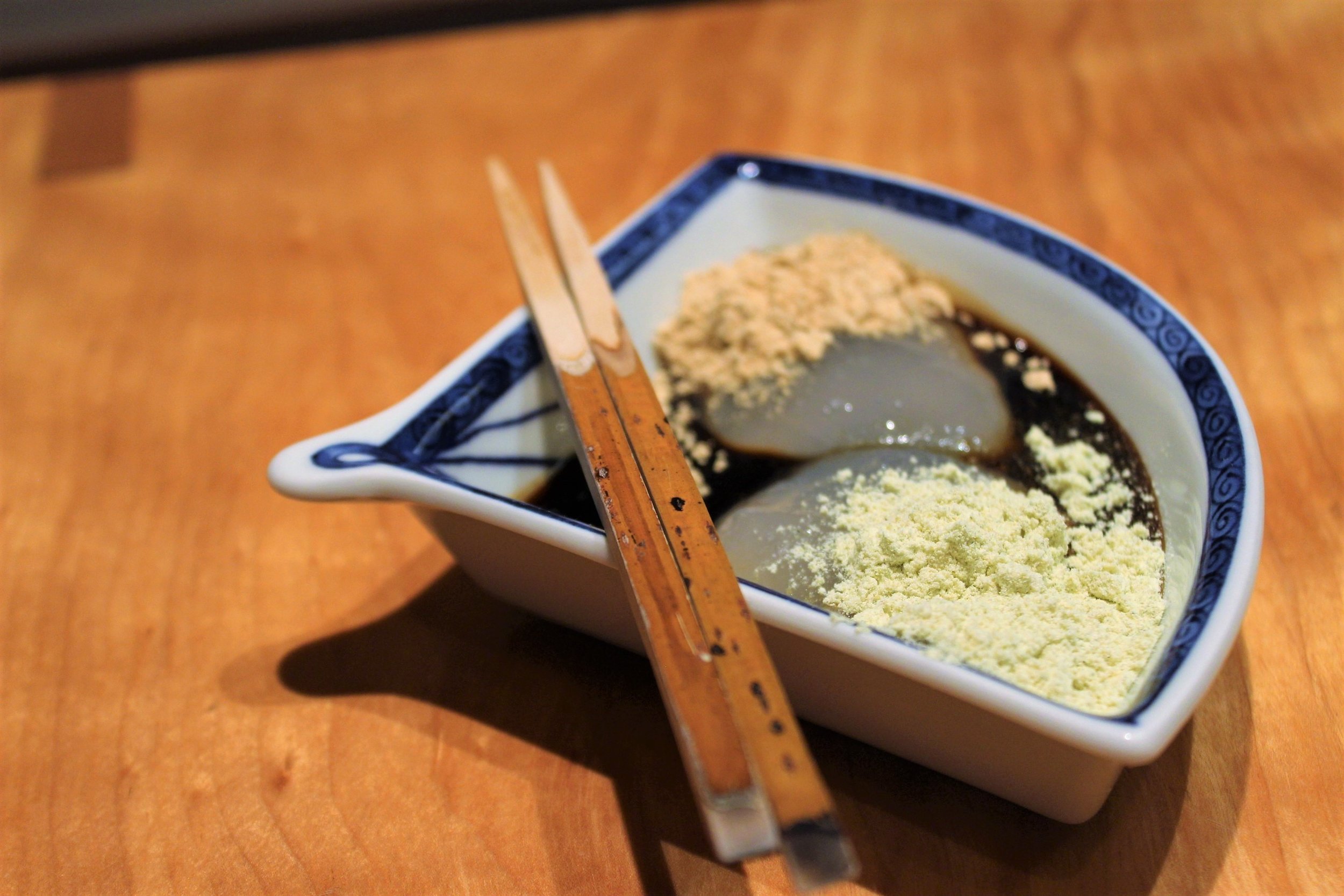
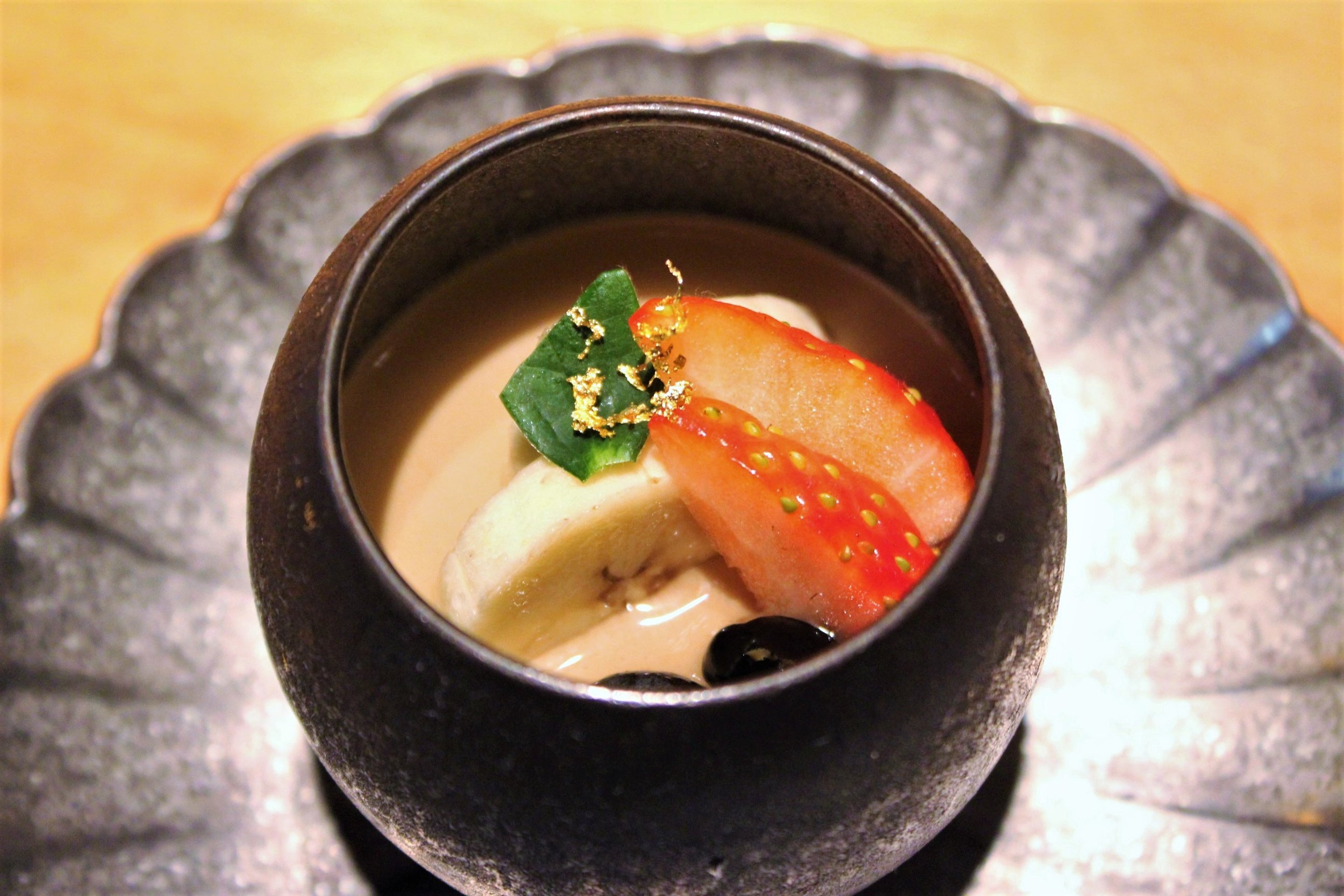
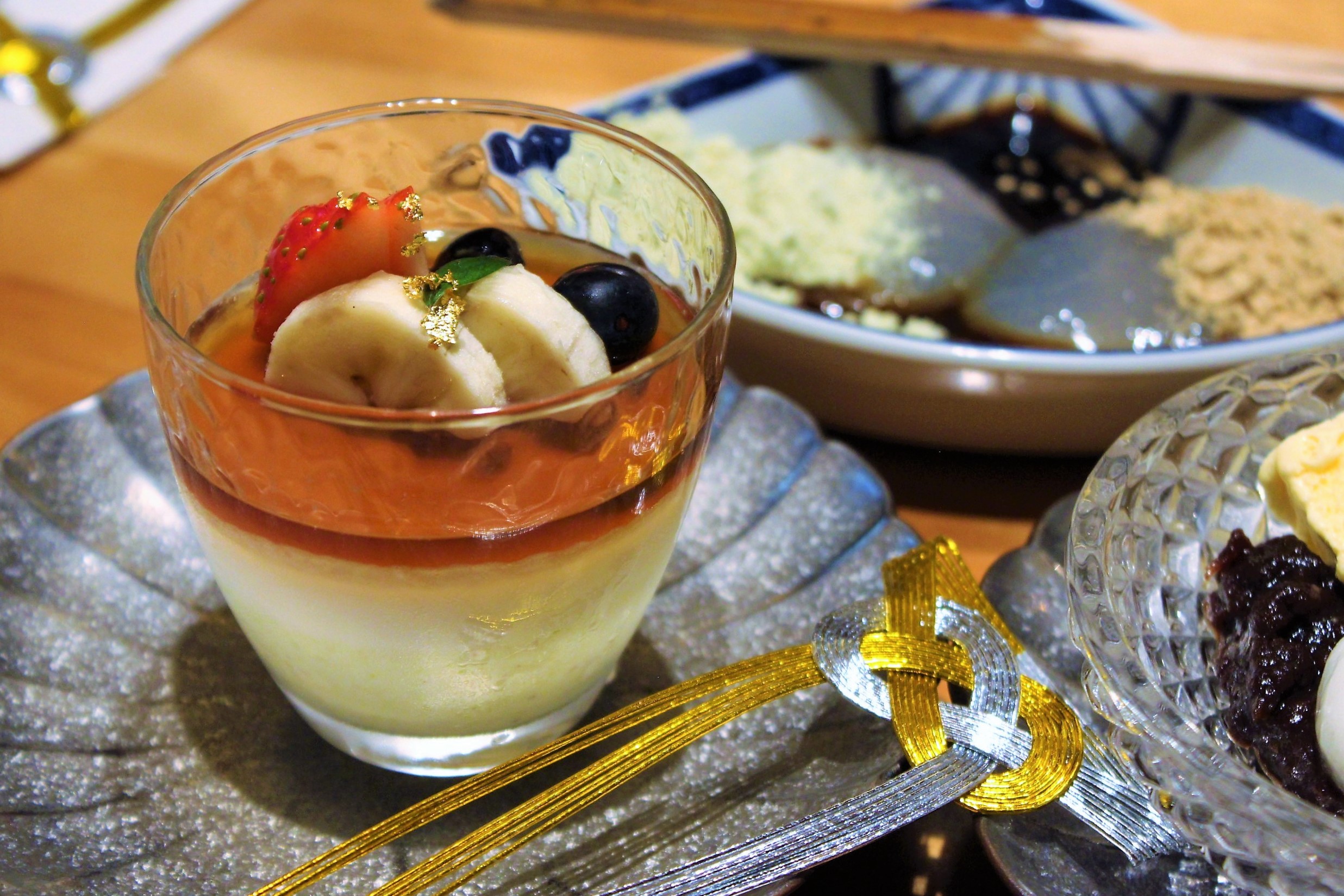
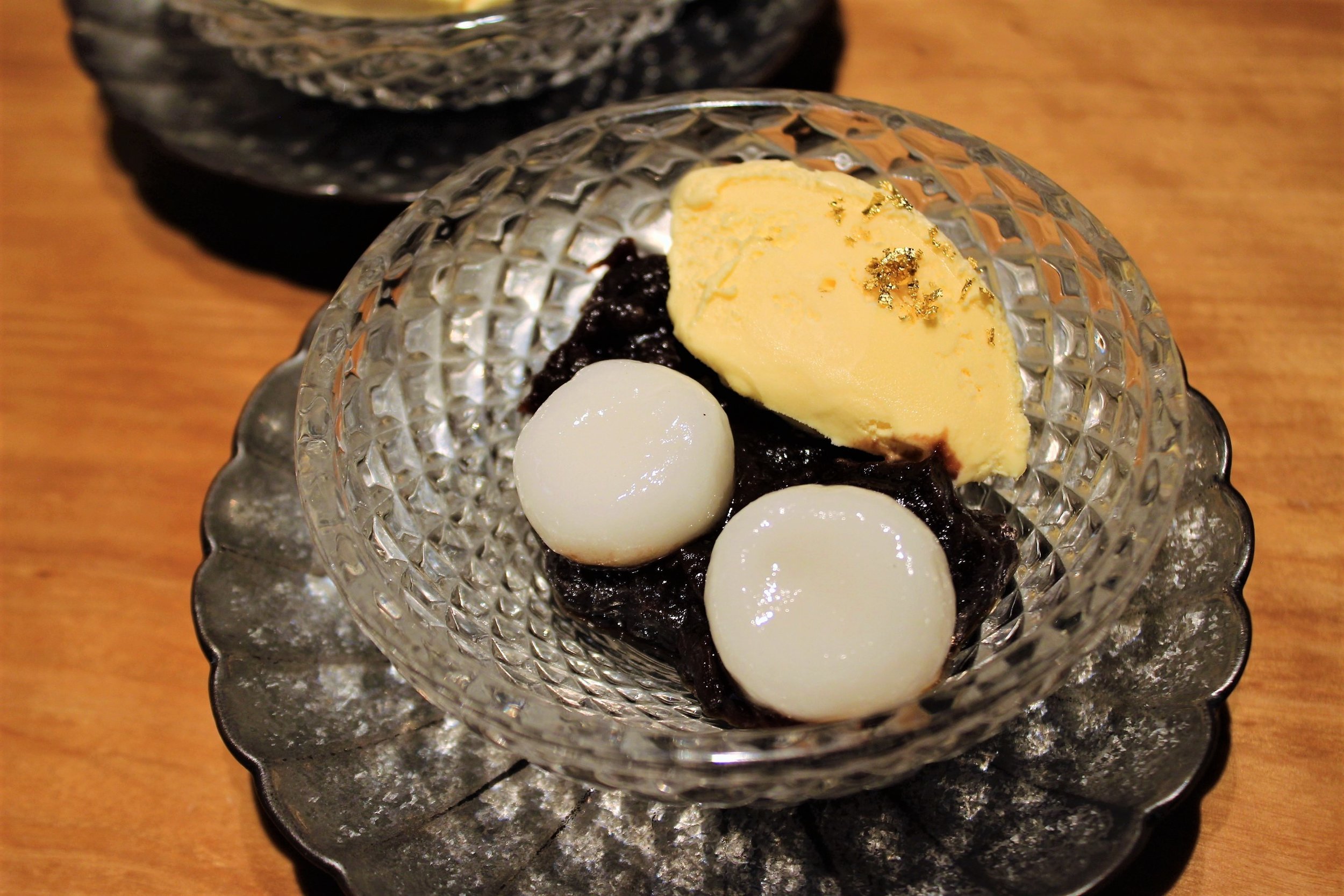
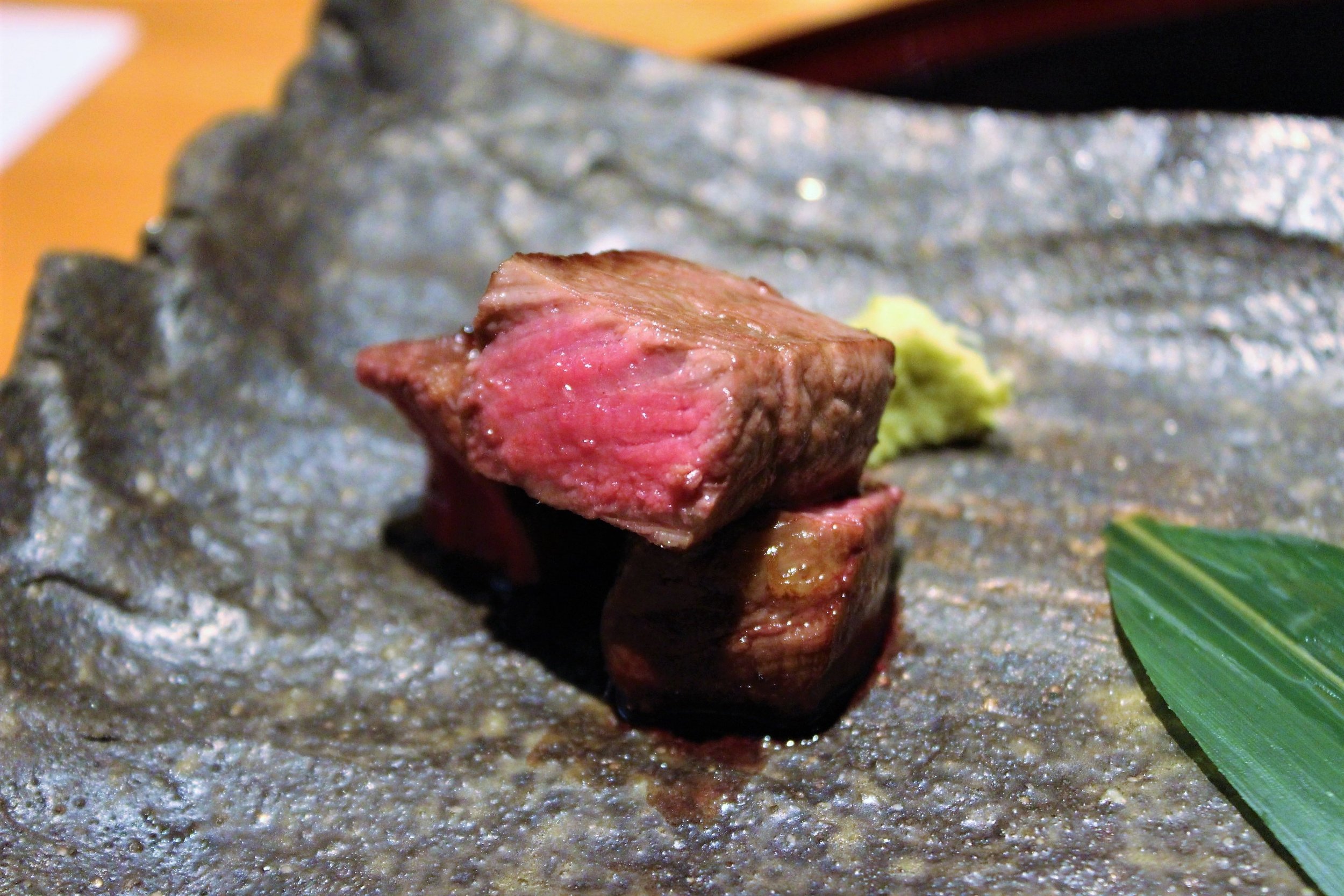
Hi Everyone! It's been a while since I've written a post so forgive any signs of my illiteracy in this review. This is going to be a pretty long review so I hope you aren't hungry. Today, we'll be talking about Kien, a one Michelin-starred restaurant in Akasaka, Tokyo. It's known for its elaborate Kaiseki, or traditional multi-course meals. This type of meal allow a chef to showcase his or her ability to prepare a variety of dishes, each of which utilize a different cooking technique.
To me, Kaiseki meals are like tiny food adventures. Some have a slow start then end with a strong finish. Other meals might start off like a sprint then end with a casual walk. Looking back, our meal at Kien was intense and exciting... like a Christopher Nolan movie.
I went to Kien with my parents, my uncle, and my cousin. We waited outside until our reservation time. PRO TIP: Make a reservation because this place is quite small. You can check out their reservation policy here. Anyway, while waiting, we noticed that some of the guests before us were escorted out of the restaurant by someone who looked like the chef! It seemed like they were all frequent customers. That was a good sign.
Address: 赤坂2-18-8, Minato, 東京都 〒107-0052, Japan
Recommended:
Green Crab with Vinegar Jelly and Sudashi Citrus
Soba with Dried Mullet Roe Powder and Truffle Oil
Steamed Egg Custard with Shirako and Truffle
Grouper, Fuki, and Bamboo Shoot Tempura
Crab Meat Ball with Nori, Rice Cake, Lemon Rind, Carrot, and Gold Flake
Fugu Skin and Meat
Shirako in Ponzu Sauce
Seared Chutoro with Spring Onion
Wagyu Filet
Grilled Nodoguro (Blackthroat Seaperch)
Shrimp, Turnip, Wasabi, and Gingko in Warm Dashi Jelly
Red Snapper with Salmon Roe over Rice
Pickled Vegetables
Miso Soup
Warabi-mochi Bracken Starch Jelly covered in Kinako Toasted Soybean Flour
Brown Sugar Blancmange
Pistachio and Coconut Bavarian Cream
Cream Shiratama Zenzai Azuki Beans with Mochi Ball and Vanilla
Ice Cream
Eventually, we were seated and offered some celebratory (and complimentary!) New Year's champagne. We ordered some sake and started the night out strong with some Green Crab (see above). The chilled Green Crab meat and roe was buried under some refreshing Vinegar Jelly. The taste was surprisingly light and delicate. The roe was firm and somewhat sweet.
Next, we had a small noodle dish (see above). On any other day, it was easily two bites worth. But, for this meal, I knew I had to savor my food. The next dish was Soba with Dried Mullet Roe, or Karasumi. This type of roe is salted then air-dried to condense all its savory and fishy flavors. As if it couldn't get any better, Kien also drizzled it with Truffle Oil.
Finally, the third dish was like the last note of a crescendo. It was jarringly rich, even more than the Green Crab Roe and the Truffle Karasumi Soba. It was a Steamed Egg Custard with Shirako, or Milt (see above). It's the male version of roe and it's typically harvested from Cod. It sounds strange but it's surprisingly good. It's creamy and buttery, kind of like liquefied monk liver. The milt, enclosed in a thin casing, was lightly torched until brown. It looked like the burnt cheese part of the pizza. Actually, it also tasted like burnt cheese. Sounds good, right? It was also topped with some Shaved Truffles. *mic drop*
At this point, Kien had my full attention... sort of. I drank a lot of sake by this point. The fourth dish was tempura made with Grouper, Fuki, and Bamboo Shoot (see above). Overall, the crunchy exterior was light and thin. The Grouper was soft and mild in flavor. To me, the Fuki was very interesting. It's known to be a bitter vegetable and it has to be prepared very carefully because parts of the plant can be toxic when ingested. Kien's Fuki tempura was not at all bitter and similar in flavor to fennel or celery.
To wash down the tempura oils, we were served a Crab Meat Ball with Nori, Rice Cake, Lemon Rind, Carrot, and Gold Flake (see above). Carefully, I devoured it whole to enjoy all the flavors of the different ingredients. It tastes the way you would imagine: hearty and refreshing. The Lemon Rind was great because it brought in some zesty, bitter flavor. It sat in a little bath of broth.
The next dish was quite a delicacy. It came in two parts. First, the Fugu fish. You can read all about the Fugu fish here. Also known as the pufferfish, this fish contains a deadly amount of tetrodotoxin in its liver, eyes, skin, and other internal organs. There is no known antidote for its poison.
FUN FACT: Fugu chefs have to train for two to three years to gain certification. The exam includes a real fugu preparation test where candidates must eat the fish they prepared themselves. Only about two-thirds of the candidates pass. I'm afraid to ask what happened to the other one-third of the candidates. Sounds like a promising career path.
Anyway, our Fugu came with both the meat and the skin (see above). They were both fairly similar in taste but the skin was a bit bouncier. It tastes like chicken but with a jelly-like texture.
Additionally, Kien provided us with a tiny bowl of Shirako in Ponzu Sauce (see above). This time, the Shirako seemed to be without its outer casing. Same flavor as before but less viscous and more salty (because of the Ponzu).
Next, we had some Chutoro over Rice (see above). It was topped with finely julienned Spring Onion. Chutoro is a specific cut of Tuna that is along the belly but located towards the tail. It is a crowd favorite because it is less fatty than Otoro but fattier than Akami. Kien lightly seared the Chutoro so the exterior had a smoky aroma and a firm, meaty texture. We ate this in one bite and it was glorious.
The next dish was, to me, the star of the show. It was like a really fancy surf-and-turf and it actually tasted really good. On one plate, there were two slices of meat and two slices of fish. First, we'll check out the meat, which was a Wagyu Filet(see above). These bite-sized flavor bombs were cooked medium rare to contain all the heavenly juices. It was accompanied by a scoop of wasabi. Yes, the Japanese enjoy wasabi with their beef too!
The fish of the dish was a Grilled Nodoguro (Blackthroat Seaperch) (see above). This fish was transcendental. It's definitely up there at the top of my list of best fish experiences. I didn't know a fish could be so juicy and flavorful. The thing that boggled me was how balanced all the flavors were. That charred, smoky flavor from the skin was perfectly aligned with the rich, buttery flavor of the meat.
If you've ever tried Otoro (the fattiest part of the tuna), it's probably a bit less buttery than that but that's still amazing for a white-fleshed fish. This fish is rarely seen in restaurants because the fish itself is quite rare. In addition, the yield per fish is so low that you don't get a lot of meat per fish.
Next, we had a warm, simple dish to wash down all the extravagant flavors of the previous dish. It was a Turnip and Gingko Ball with Shrimp and Wasabi (see above). Ginkgo nuts are soft and chewy, like a jelly bean. It tastes nutty and a little bitter. FUN FACT: Eating 10+ ginkgo nuts can cause stomach aches or nausea.
Next, we had some pickled vegetables and miso soup to accompany our...
MASSIVE RICE DISH! (see above) After 9 whole dishes, they hit us with a huge pot full of Red Snapper and Salmon Roe over rice. It was beautiful. All the sweet juice of the fish had seeped into the rice. Honestly, if I weren't hungry, I could probably eat the whole thing. But, I was so full. Most kaiseki meals end with a rice dish so they make sure you don't leave hungry.
Finally, we are at the dessert. We got one of each dessert to share. The first was a Warabi-mochi, which is a Bracken Starch Jelly (see above). It was covered in Kinako (Toasted Soybean Flour). It's different than regular mochi because regular mochi is made with glutinous rice. To me, it's a bit softer than regular mochi. The Kinako gives it a sweet, nutty, and maple-like taste.
Next, we tried the Brown Sugar Blancmange (see above). It's very similar to a panna cotta. It's a sweet dessert that's made with milk or cream. The flavor is mild but it goes well with sweeter toppings like fruit.
The third dessert was a Pistachio and Coconut Bavarian Cream (see above). This one was much more rich and creamy. It was a sinful dessert compared to the Blancmange.
Lastly, we had the Shiratama Zenzai (see above). It was made of Azuki Beans, Mochi and Vanilla Ice Cream. This is a very traditional dessert but usually there is no ice cream. I liked it!



